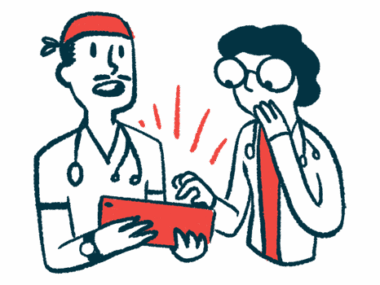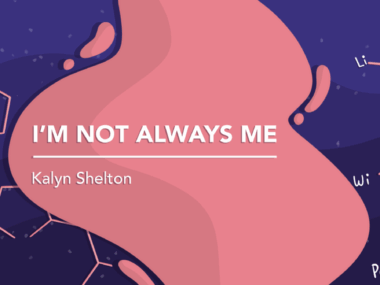Porphyria Has Taught Me There’s No Going Back to Normal
Written by |

Like others, I’m guilty of hating on 2020. In relation to in-person gatherings, I’ll be the first to admit I’ve said things like, “After all this is over, …” and, “When we get back to normal, …”
But if my acute hepatic porphyria (AHP) has taught me anything, it’s that buying into this thought pattern is shaky ground.
I think Oprah Winfrey said it best: “All stress comes from resisting what is.” If I’m wishing for things to be different, I am actively denying the reality around me.
What is normal, anyway? Maybe there’s no such thing.
***
Within a week in February 2017, I lost my job, received a painful, rare, and chronic diagnosis, and lost the ability to walk on my own due to temporary porphyria-induced paralysis. I remember the nightmare-inducing, catastrophizing uncertainty of my early days living with AHP, when in a short manner of time, my life came crashing down. The threat of another severe attack lurked behind every decision I made.
In those days, I didn’t know if my disability would be long term, I didn’t have a reliable source of income, and I was counting down until my COBRA benefits from a previous employer were up. I didn’t know anyone else with a diagnosis and didn’t yet have a medical team. Those days were dark and spinning. I wouldn’t wish them on anyone.
Sadly, right now I see a similar fear on the faces of my friends and neighbors. I also see a reliance on a brighter future, when problems most certainly will be solved with different leadership and a vaccine. It won’t be long before all the smoldering embers of the explosion that was our pre-pandemic lives are reassembled and put back into place.
I hear this sentiment, and I’m all for being optimistic. Except I don’t think we should go back to the way things were. If we do that, what have we learned from this period in history? What takeaways do we have from this chunk of our lives?
Let’s review 2020. It’s shone a light on the horrors of systemic racism and created a new awareness of social justice issues. This year, the magic of technology allowed employees around the world to work from home, encouraged families to be creative with virtual interactions, and catapulted the development of COVID-19 vaccines, which were created in record time. Now it’s commonplace to order groceries, attend concerts, and go to school from our living rooms. If we go back to normal, are we disregarding all of this truth?
If living with my porphyria has taught me anything, it’s that I cannot force things. Once I found a doctor to manage my care, I started a treatment plan. My hopes that life would return to normal hinged on my body’s response to medication. But there’s no cure for porphyria, and my expectations were misaligned with my reality. I remained a prisoner of my habitual thought patterns and anxiety.
Following years of struggle, and after forcing myself to work a full-time job and willing my body to function as if it were not in chronic pain or fatigue, I was tired of falling in the same hole. I decided to take a different approach and begin to make peace with my porphyria. After all, it is coded in my DNA.
Once I started accepting my body, I could embrace what porphyria has taught me. I could accept where I was and who I am. Instead of dwelling on my limitations or what had been lost, I could remind myself daily of all I had to be grateful for.
There’s power in practicing gratitude, and it helps dial me into the present moment, where anxiety cannot survive. Our day-to-day may be different than anything we’ve ever known, but that alone doesn’t necessarily make it bad or scary.
We can learn to see the beauty in the slower pace this pandemic has forced into our lives. The gradual onset of my chronic illness has taught me there is no such thing as “normal.” Wishing things are different and then forcing my poor body to do things will not change my reality.
While we mourn those we have lost, I also truly believe that some good will come from this pandemic, if we stop resisting.
***
Note: Porphyria News is strictly a news and information website about the disease. It does not provide medical advice, diagnosis, or treatment. This content is not intended to be a substitute for professional medical advice, diagnosis, or treatment. Always seek the advice of your physician or other qualified health provider with any questions you may have regarding a medical condition. Never disregard professional medical advice or delay in seeking it because of something you have read on this website. The opinions expressed in this column are not those of Porphyria News or its parent company, Bionews, and are intended to spark discussion about issues pertaining to porphyria.






Leave a comment
Fill in the required fields to post. Your email address will not be published.